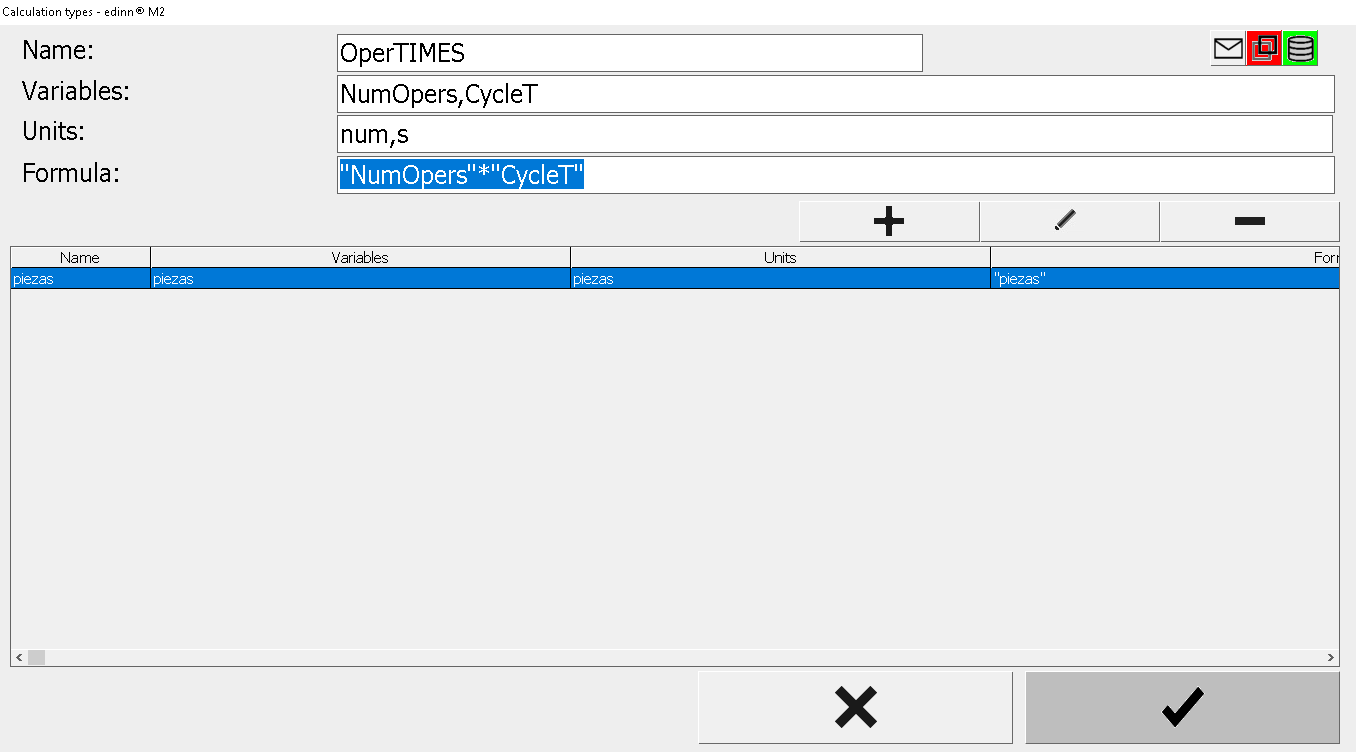Calculation types
Click to configure > Calc. types
The calculation types are different formulas to perform calculations. For example: to calculate production or scheduled times to generate results.
In the lower part: you will see a grid with the calculation types already configured, on which you can perform operations on the grid such as Insert, Save or Delete.
In the upper part: you will see the configuration of each record, where you can configure the parameters of a new insertion or edition.

CONFIGURATION PARAMETERS:
- Name: name of the calculation type (and how it will appear to the user)
- Variables: variables that will be requested in order to calculate the quantity. There are predefined variables that can be used:
- CycleOT: Operator cycle time.
- CycleT: Cycle time.
- CycleQ: Quantity per cycle time.
- Created: Date and time of creation of the field.
- DateAsRef: The date and time of the last result, or when a change in the result id or order id happened.
- NumOpers: Number of operators working on the process.
- Units: measurement units that will be used to express the result of the calculation.
- Formula: mathematic function used to calculate the result. Variables must be enclosed with quotation marks, for example: "Width".
EXAMPLES:
- Suppose that our process is producing square meters of material (you should indicate exactly the following):
- Name: m2
- Variables: width, height
- Formula: "width" * "height"
- Suppose that our process is producing bags:
- Name: bags
- Variables: bags
- Formula: "bags"
- Suppose we need a type of calculation to let the user introduce production cycle time in seconds (although the user will introduce time in minutes)
- Name: EstTime
- Variables: esti
- Formula: 1/("esti" * 60)
- Suppose we need a type of calculation for the user to introduce the date and time when the result will be finished:
- Name: EstiDateTi
- Variables: Created,EstiDateTime
- Donde EstiDateTime debe ser un campo de fecha hora.
- Formula: 1/DateDiffSec("DateAsRef";"EstiDateTime")
